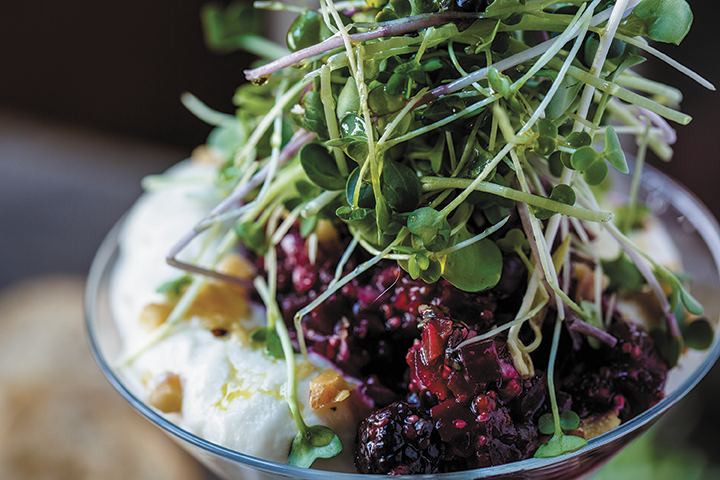The benefits of a vegetarian diet are well known, yet many are still hesitant to take the leap to a meatless diet for fear of not knowing where to start. Rest assured, becoming a vegetarian, or even a flexitarian, is easier than you think. – Interview with Isabelle Huot
- Are we in the middle of a vegetarian trend?
Yes, certainly! More and more Quebecois are choosing a vegetarian and even a vegan (a diet without any animal products) lifestyle. This trend is especially taking hold among the 20-35 year-olds who want to adopt a healthier and environmentally friendly lifestyle. I also notice a real interest in abandoning meat in my clients in their 40s and 50s following a visit to the doctor, where they learned of an elevated cholesterol level or cardiovascular problems.
- What are the main reasons for changing to a vegetarian lifestyle?
For the younger people, it is truly a matter of ethics: we know that the meat production has a lot of environmental consequences (production of greenhouse gases, overuse of drinking water, deforestation, etc.). Also, the living conditions of the industrial bred livestock are a reason for many to not consume meat. For people belonging to older generations, the desire to take better care of their overall health is a big motivator. A recent report of the World Health Organization highlighted the carcinogenic effects of red meat and cold cuts. It is also a well-known fact that the consumption of too much red meat increases the risk of developing blood pressure, cholesterol and other health problems. Therefore all of us can benefit from limiting our meat consumption and prioritize the protein intake from plant sources.

- What should be avoided when choosing vegetarianism?
The first mistake people make when they want to become vegetarians is to not plan their approach. First, it is essential to know why one has made this decision. When our motives are clear, engaging in the change becomes much easier. Afterwards, making the right decision requires to have enough nutritional knowledge, because vegetarianism doesn’t mean to simply eliminate meat from your diet. You have to know how to replace it with good sources of vegetable protein, and make sure that your diet remains rich in iron, calcium and vitamin B12, in order to avoid deficiencies. I highly recommend a meeting with a nutritionist before starting the process of becoming a vegetarian, since he/she can give you a wealth of relevant information (practical tips, recipe and menu ideas, etc.) to start out your new way of life on the right track!
- Flexitarianism, a nice compromise
When thinking about becoming a vegetarian, it might be a good option to first adopt “Flexitarianism” or semi-vegetarianism, which means a diet mostly without meat, but where you give yourself the right to eat meat occasionally. I consider myself to be a flexitarian: I don’t eat meat at home, but I allow myself to have it at a restaurant or when I am invited at a friend’s house. Some people find that this lifestyle suits them better since they feel freer in their food choices and don’t put unnecessary pressure on themselves by a strict and defined diet.

- BBQ season is here! Can we still enjoy it to the max without eating meat?
There are endless possibilities to cook a colorful and tasty meal on the BBQ! Why not try a grilled tempeh burger, soy sausages or a Korean hot dog with Kimchi style marinated vegetables? Grill vegetable skewers with halloumi cheese or tofu cubes marinated with garlic and your favorite spices. Be creative, have fun and don’t hesitate to share your vegetarian recipes with your friends and colleagues for more inspiration.

- How to become a vegetarian in 7 weeks
By gradually adopting a vegetarian diet you make sure that you have enough time to learn, inform and inspire yourself and to experiment to keep eating fun and to stay healthy! Here are some ideas for a successful transition.
- Week 1 (1 day without meat): Replace your piece of meat with fish or a tofu-based meal (for example a stir-fry).
- Week 2 (2 days without meat): Introduce new legumes. They are a great source of protein and fiber. Another advantage is that they are very economical! Try falafels made with chickpeas.
- Week 3 (3 days without meat): Grains are also rich in protein and fiber. Try to cook a delicious vegetable couscous or a nice quinoa salad.
- Week 4 (4 days without meat): Treat yourself with some vegetarian comfort food! For example a vegetable gratin, a lasagna with eggplants or a vegetarian chili!
- Week 5 (5 days without meat): By now you have a whole bunch of new recipes in mind. Why not try a quiche with asparagus or pasta with pesto and pine nuts?
- Week 6 (6 days without meat): Find inspiration from different countries to brighten up your meals: the Indian and Lebanese cuisines are full of tasty vegetarian dishes!
- Week 7: You succeeded in discovering a multitude of recipe ideas and acquired the right reflexes to replace the meat in your diet. Enjoy all the benefits of your healthier lifestyle!
YOU MAY ALSO LIKE THESE ARTICLES
Go back to school in a well-balanced way – eating well despite a busy schedule
Demystify certain beliefs about the raw food diet




